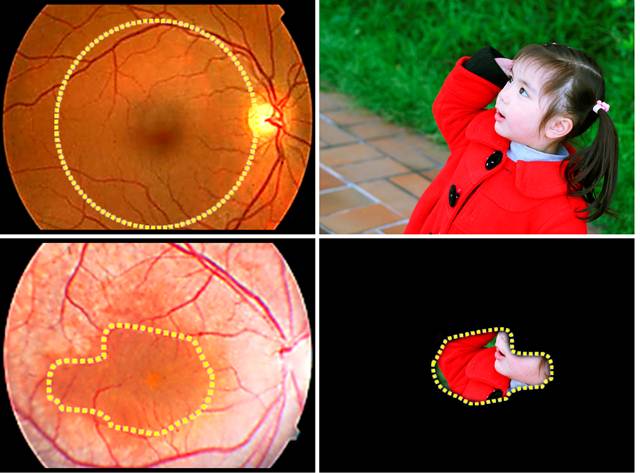
Patients’ own cells transformed into model for studying disease and developing potential treatment
Columbia University Medical Center (CUMC) researchers have created a way to develop personalized gene therapies for patients with retinitis pigmentosa (RP), a leading cause of vision loss. The approach, the first of its kind, takes advantage of induced pluripotent stem (iPS) cell technology to transform skin cells into retinal cells, which are then used as a patient-specific model for disease study and preclinical testing.
Using this approach, researchers led by Stephen H. Tsang, MD, PhD, showed that a form of RP caused by mutations to the gene MFRP (membrane frizzled-related protein) disrupts the protein that gives retinal cells their structural integrity. They also showed that the effects of these mutations can be reversed with gene therapy. The approach could potentially be used to create personalized therapies for other forms of RP, as well as other genetic diseases. The paper was published recently in the online edition of Molecular Therapy, the official journal of the American Society for Gene & Cell Therapy.
“The use of patient-specific cell lines for testing the efficacy of gene therapy to precisely correct a patient’s genetic deficiency provides yet another tool for advancing the field of personalized medicine,” said Dr. Tsang, the Laszlo Z. Bito Associate Professor of Ophthalmology and associate professor of pathology and cell biology.
Read more . . .
The Latest on: Personalized Gene Therapy
[google_news title=”” keyword=”Personalized Gene Therapy” num_posts=”10″ blurb_length=”0″ show_thumb=”left”]
via Google News
The Latest on: Personalized Gene Therapy
- Michigan boy receives groundbreaking gene-editing treatment to restore visionon May 7, 2024 at 9:31 pm
An 11-year-old boy in Warren has made medical history. He is one of two children in the world to receive an experimental gene therapy procedure to restore vision.
- Opinion: A CRISPR breakthrough? The gene therapy has been approved to treat sickle-cell diseaseon May 7, 2024 at 3:05 pm
A new gene therapy, utilizing the gene-editing tool known as CRISPR to treat sickle-cell disease, has received approval in the U.K., the U.S., and the EU. This milestone marks a potential breakthrough ...
- Patient dies in Pfizer study of Duchenne gene therapyon May 7, 2024 at 2:39 pm
Pfizer said the patient, a young boy who was treated earlier last year, had died suddenly. The company is working with trial researchers to investigate further.
- Krystal Biotech touts topical gene therapy uptake, plots overseas launcheson May 7, 2024 at 10:27 am
After a 2023 approval from the FDA, Krystal Biotech has collected more than $95 million from its launch of Vyjuvek, the first treatment for the rare skin disease dystrophic epidermolysis bullo | The ...
- Nanoparticle researchers develop microfluidic platform for better delivery of gene therapy for lung diseaseon May 7, 2024 at 7:14 am
Drug delivery researchers at Oregon State University have developed a device with the potential to improve gene therapy for patients with inherited lung diseases such as cystic fibrosis.
- Gene Therapy Improves Vision in People With Inherited Blindnesson May 6, 2024 at 6:00 am
An injectable gene therapy caused measurable improvements in vision among a small group of people with inherited blindne ...
- BioIVT Highlights its Focus on Cell and Gene Therapy in Spring Industry Eventson May 6, 2024 at 5:00 am
BioIVT, a global research partner and biospecimen solutions provider for drug and diagnostic development, today announced it will be attending two leading industry events focused on cell and gene ...
- Drug watchdog criticizes Sarepta gene therapy approval, coston May 3, 2024 at 11:27 am
The chief medical officer of a drug pricing watchdog is warning against the FDA granting full approval to drugs that were previously granted accelerated approval if they then go on to fail ...
- What Lies Ahead? Shaping the Future of Cell and Gene Therapyon April 29, 2024 at 1:24 pm
Sponsored content brought to you by The launch of Revvity, Inc. in May 2023 signaled the rebranding of an 85-year-old company with a dedicated focus on the diagnostics and life sciences sector.
- U.S. FDA Approves Pfizer’s BEQVEZ™ (fidanacogene elaparvovec-dzkt), a One-Time Gene Therapy for Adults with Hemophilia Bon April 26, 2024 at 7:45 am
Pfizer Inc. (NYSE: PFE) announced today that the U.S. Food and Drug Administration (FDA) has approved BEQVEZ™ (fidanacogene elaparvovec-dzkt) for the ...
via Bing News









